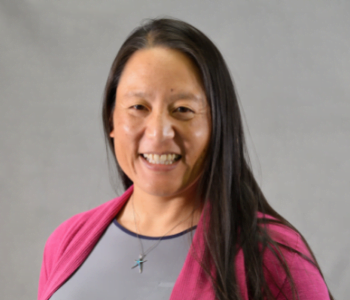Dr. Kimberly Takagi awarded ‘Professor of the Year.’
Dr. Takagi is known as a professor who deeply cares for her students, but also challenges them.
“She is one of the most caring teachers I’ve ever had,” one student said. “She believes in me, takes extra time to help me understand my mistakes, and encourages me to keep going.”





















